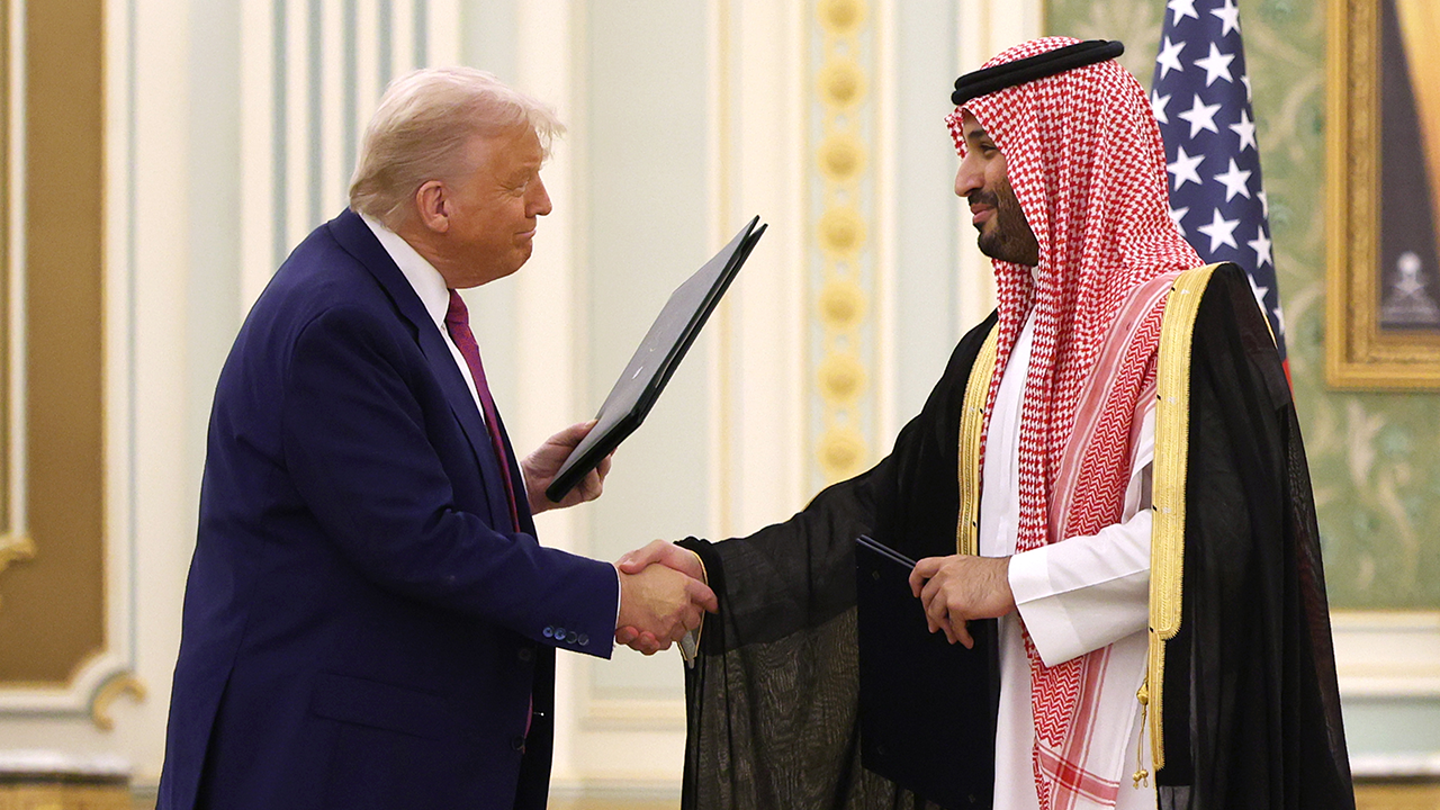Trump Forges $600 Billion Economic Pact with Saudi Arabia
On May 13, 2025, President Donald Trump signed a landmark “strategic economic partnership” with Saudi Arabia, marking a significant step in deepening U.S.-Saudi relations. The agreement, formalized in Riyadh alongside Crown Prince Mohammed bin Salman, is projected to channel up to $600 billion into the U.S. economy and create as many as 2 million American jobs. This deal, part of Trump’s Middle East tour, underscores his administration’s focus on securing substantial foreign investments to bolster domestic growth.

The partnership spans a wide array of sectors, reflecting the multifaceted nature of U.S.-Saudi collaboration. A cornerstone of the agreement is a $142 billion defense sales deal, which the White House describes as one of the largest defense cooperation agreements in U.S. history. This includes provisions for advanced military equipment to enhance Saudi Arabia’s security capabilities. Beyond defense, the pact covers energy, mining, technology, and infrastructure, aligning with Saudi Arabia’s Vision 2030 initiative to diversify its oil-dependent economy.
Notably, the agreement extends to cultural and scientific cooperation. Memorandums of understanding include partnerships between Saudi Arabia and the Smithsonian Institute’s National Museum of Asian Arts and National Zoo and Conservation Biology Institute, signaling a commitment to shared cultural and environmental goals. Technology investments, particularly in artificial intelligence, were also highlighted, with Saudi Arabia aiming to position itself as a global AI hub.
Trump’s visit to Riyadh was marked by a lavish reception, with Saudi fighter jets escorting Air Force One and a ceremonial welcome by Crown Prince Mohammed bin Salman. The Saudi-U.S. Investment Forum, held concurrently, drew prominent American business leaders, including Tesla CEO Elon Musk, OpenAI’s Sam Altman, and BlackRock’s Larry Fink. Their presence underscored the private sector’s enthusiasm for the economic opportunities presented by the partnership.

However, the deal has sparked debate. While the White House touts it as a “new golden era” for U.S.-Saudi relations, some analysts question the feasibility of the $600 billion investment figure, given Saudi Arabia’s economic constraints. Additionally, Trump’s family business interests in the region, including Trump Organization projects like a Trump Tower in Jeddah, have raised ethical concerns about potential conflicts of interest. Critics argue that these ties could influence diplomatic decisions, though the administration maintains that the agreements prioritize American economic benefits.
The strategic partnership also has geopolitical implications. Trump expressed hope that Saudi Arabia might join the Abraham Accords, which normalize relations between Israel and Arab states, though Saudi officials indicated no immediate plans to do so without progress on Palestinian statehood. The agreement further strengthens U.S. influence in the Gulf amid tensions with Iran and ongoing regional conflicts.
As Trump continues his tour to Qatar and the UAE, the Saudi deal sets a precedent for his administration’s economic diplomacy. By leveraging historic ties and high-stakes negotiations, Trump aims to deliver on his “America First” agenda, though the long-term impacts of this partnership—both economically and ethically—remain under scrutiny.


One thought on “Trump Forges $600 Billion Economic Pact with Saudi Arabia”